Bill Wordell’s earliest memories are of sewing machines and bolts of fabric. He began learning the rhythms of Murray’s Fabrics, his family’s Orleans sewing shop, when he was five years old. He started out emptying trash cans, and by age seven he had graduated to wiping down customer machines after his father had repaired them.
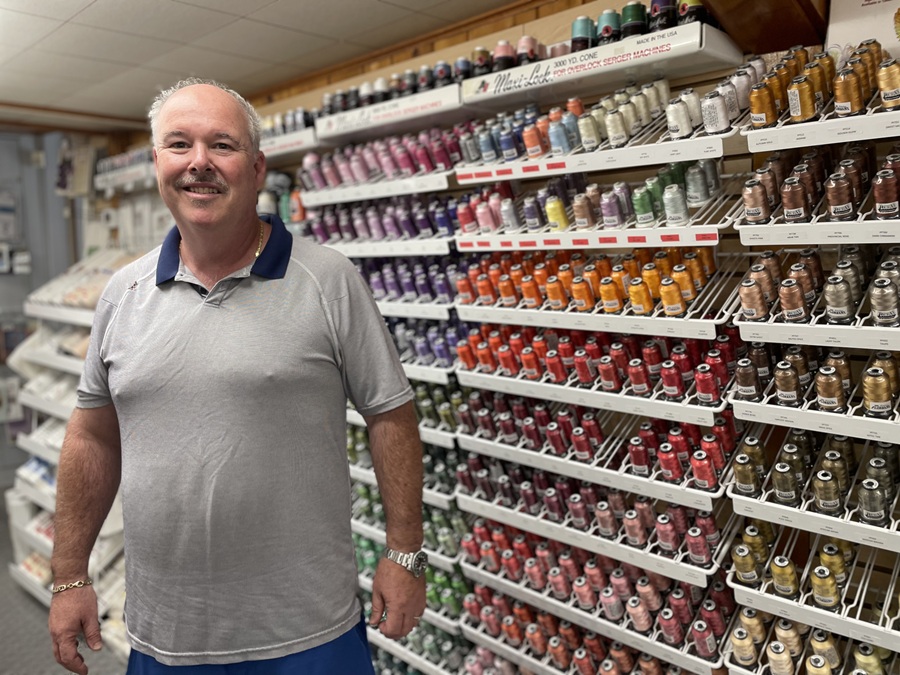
It wasn’t a long commute. Wordell and his parents, Hillman and Patricia, lived upstairs, just as his grandmother Julia Murray had done before them. Wordell says the house has been in the family since the 1700s. From the late 1800s until it closed in the 1920s, the first floor was the Cove View Diner. After the restaurant closed, Wordell’s grandmother began using the downstairs space as her parlor.
“She loved to weave, and she had a spinning wheel and looms — she made her own fabric,” says Wordell. Eventually, she decided to set up her own parlor store.
Today, nearly eight decades after Julia first opened Murray’s, Wordell finds himself running the last full-service sewing store on Cape Cod.
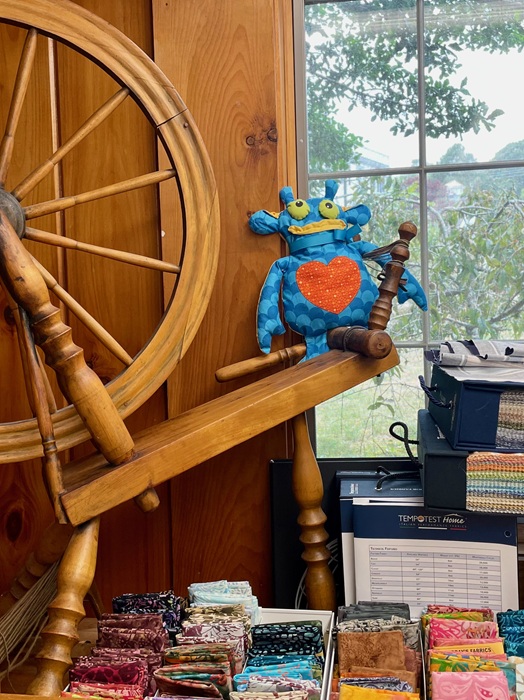
With the closure of many local shops over the years and the recent shutdown of the national chain store Joann Fabrics, including its Hyannis location, Murray’s has become the sole keeper of an entire craft ecosystem, stocking fabric and notions, catering to quilters, and selling and servicing sewing machines.
“We have had a lot of new customers,” says Wordell. It takes those who are used to browsing big box stores a while to figure out how a small shop works, he says. “Even though there is so much stuff here, they want to know ‘where is this department or that department?’ ”
At Murray’s, you enter through the side door of the enclosed front porch. What you see first is the discount aisle, if you will: “Porch fabric” patterns are usually one to three years old. Beyond that, it’s a bit like stepping into the workroom of your favorite crafter. From floor to low-slung ceiling, every nook and cranny is filled with merchandise. If you don’t see what you need, all you have to do is ask.
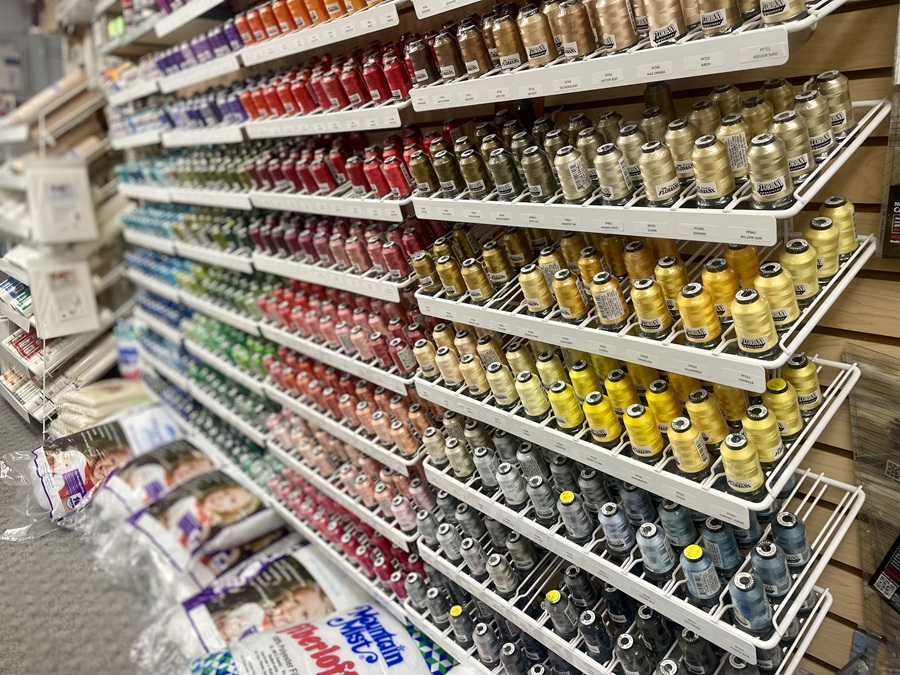
People pretty much stopped hand-sewing their clothing in the 1980s, Wordell says, and so much of Murray’s inventory of velvets, silks, and fine wool fabrics went by the wayside. But the store remained a destination for drag performers for many years. Wordell’s mother and longtime store employee Donna Mayo were even guest judges at drag shows at the Madeira Club (a 1960s Pilgrim House venue) and at the Crown & Anchor, offering their critiques of handmade costumes.
Like his father did, Wordell tends the machines. Murray’s sells several premium brands, including Janome, Husqvarna Viking, and Pfaff, that don’t make sense to purchase online. The least expensive machine, a travel unit he recommends for children, is $399. The most expensive ones sell for more than $20,000. The average sewing machine purchased at Murray’s costs $7,000.
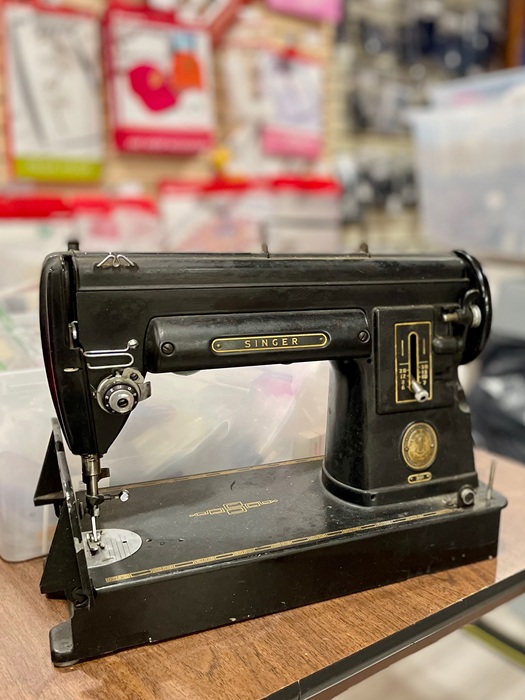
The shop also services and repairs machines regardless of when or where you bought them, employing a full-time mechanic to do that specialized work. Wordell says Murray’s has more than 8,000 parts in inventory, some that date back to the 1970s when Murray’s first started carrying machines, and some even older.
Many locals remember taking beginner classes in the workshop out back at Murray’s. Most instructors now prefer to teach private lessons in their homes, Wordell says. He likes to send parents who inquire to Jane Bessette, who owns Stitchology. She offers group lessons for children at the 204 Cultural Center in Harwich. Murray’s supplied her with near-at-cost machines in the hope that today’s students will become future customers.
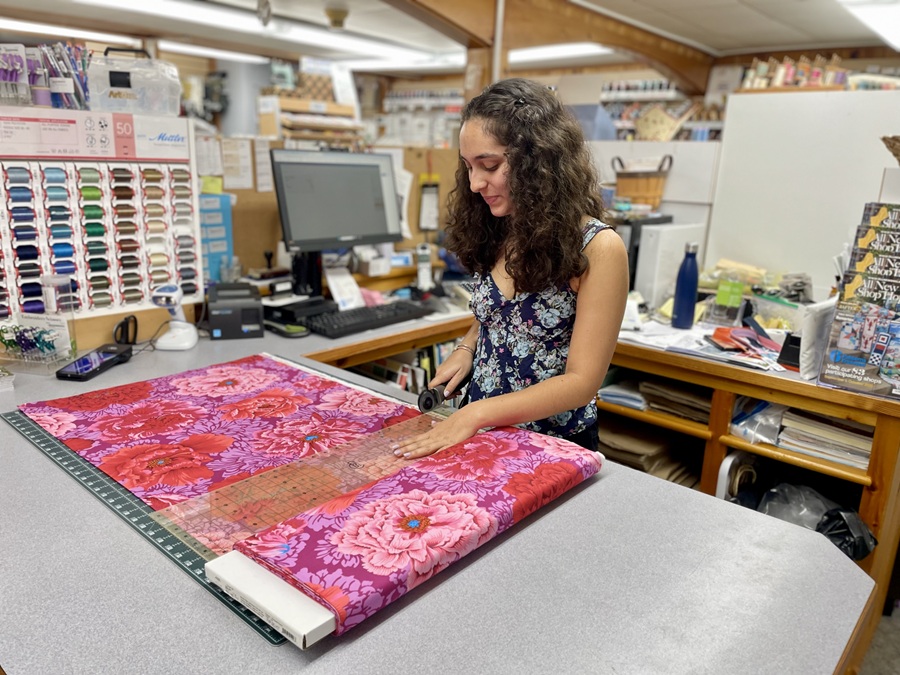
Last winter, the store saw an influx of adult novice sewists from Provincetown’s Winter Wednesdays program. Scott Coffey, a clothing designer with a storefront in the West End, taught the introductory class to about 45 students.
“It’s just a great skill to have for volunteering at theater or just hemming your own pants and curtains,” says Coffey. “Many of the students have gone on to make and sell things for the many festivals we have in town.”
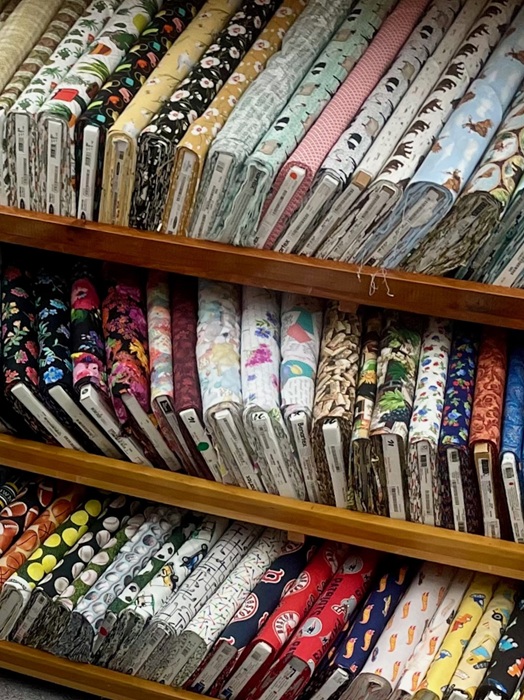
Coffey says it can be difficult and time consuming to browse fabrics without seeing swatches in person. So, he sent his students to Murray’s. Not only does the store have all the necessary accessories and add-ons for sewing projects, but Coffey appreciates how willing the staff is to help beginners.
Wordell likes it when people ask him questions. “This is my life’s work,” he says.
As he looks toward the future, Wordell faces a reality that many family-run businesses confront: neither of his sons is interested in taking over the family business. For now, you can find him at the store nearly every day it is open. This is how he honors his grandmother’s vision, his parents’ lifetime of service, and the generations of local makers who’ve found everything they need for their creative lives at Murray’s.
